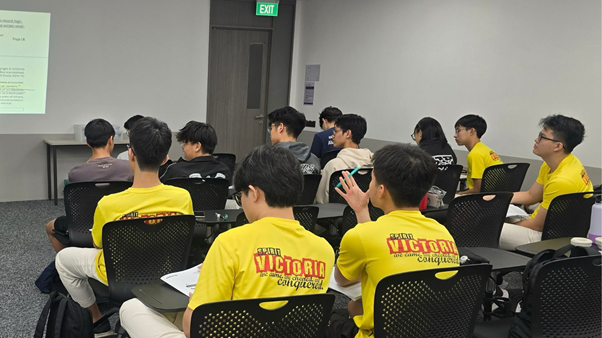
AI tools are becoming a valuable asset for students, especially those preparing for General Paper (GP) exams. These tools offer personalised learning experiences that help target your specific weak spots. However, while AI is a great supplement, it cannot fully replace the unique advantages a skilled GP tutor brings. Let’s dive into why combining AI with a good GP tutor is your best strategy for success.
Personalised Learning Support
One of AI’s major strengths is its ability to personalize learning. By identifying your weak areas, AI tools can offer targeted exercises to improve specific skills. For example, if you consistently struggle with GP vocabulary questions, platforms like Quizlet or Quillionz can generate tailored exercises to focus on those weak spots. These tools adapt to your progress, giving you more practice in the areas where you need it most.
At Indigo, we’ve seen how useful AI tools can be in helping students solidify their foundational skills, such as vocabulary and grammar. For example, when students practice using AI-generated quizzes on challenging vocabulary, they often return to class with a better grasp of essential words. This allows our tutors to focus on higher-order skills like argument development and critical thinking during lessons, knowing that foundational elements are already strengthened.
However, while this targeted practice is helpful, it’s not the full picture. AI tools can efficiently deliver personalized practice, but they don’t fully capture the nuance of GP comprehension or essay writing. That’s where your tutor steps in.
Why AI Alone Can’t Replace Your GP Tutor
AI can streamline your learning and make repetitive tasks like grammar checks and vocabulary quizzes more efficient, but GP is much more than just getting the right answers. It’s about interpreting complex ideas, understanding nuances in passages, and crafting well-thought-out arguments. This is where a skilled GP tutor is irreplaceable.
Interpreting Complex Questions
One of the key challenges in GP is interpreting complex comprehension questions. These often involve layers of meaning, inference, and rhetorical techniques. While AI tools can help break down passages and highlight key terms, understanding the deeper nuances—like tone, irony, or underlying emotional context—requires a human touch.
For example, if you encounter a GP comprehension passage where the author’s attitude is ambiguous, an AI might highlight words or phrases like “optimistic” or “sceptical,” but it can’t always explain the emotional or rhetorical subtext. A GP tutor, however, can guide you through these layers. They can point out how the author’s use of specific phrases builds sarcasm or irony and how these rhetorical strategies impact the overall meaning.
At Indigo, our tutors often spend time with students dissecting GP passages to help them see beyond the literal words. Recently, one of our students struggled with a passage about climate change, where the author’s tone fluctuated between concern and cynicism. AI tools had highlighted important terms, but it was through careful guidance from the tutor that the student grasped how the author’s sarcasm reflected deeper criticism of government inaction. This level of comprehension is something AI, with its data-driven approach, often fails to achieve.
The Best Approach: Using AI and Tutors Together
Instead of viewing AI as a replacement for a GP tutor, think of it as a powerful supplement to your learning. AI can take care of repetitive, time-consuming tasks like grammar checks, vocabulary quizzes, and basic essay feedback. This frees up your GP tutor to focus on more complex tasks, such as teaching you how to develop nuanced arguments, analyze intricate comprehension passages, and sharpen your critical thinking skills.
At Indigo, we encourage students to use AI tools for self-assessment and practice outside of tutoring sessions. For example, students might use an AI tool like Quillionz to generate comprehension questions on a passage about technological advancements. After practicing independently, they can bring their responses to class for deeper analysis and discussion. This allows the tutor to provide personalized feedback and focus on refining their essay structures or comprehension techniques, rather than just correcting basic errors.
Conclusion: Embrace AI, But Don’t Forget the Human Touch
AI is a fantastic tool for enhancing your GP learning experience. It can provide personalised exercises, instant feedback, and structured study plans that make your work more efficient. But as we’ve seen, AI lacks the ability to truly interpret complex ideas, explain nuanced tones, or offer the emotional and academic support that only a skilled GP tutor can provide.
At the end of the day, a combination of both is your best path to success. Use AI to supplement your studies but lean on your tutor for the deep insights and critical thinking skills that AI cannot offer. This balanced approach will not only help you excel in GP but also develop skills that will benefit you long after your exams.




